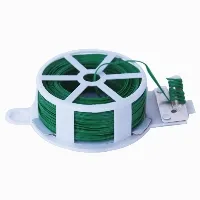-
Email:zhao@hyliec.cn
-
Tel:+86 311 85273988
-
WhatsAPP:8613931128750
-
 Afrikaans
Afrikaans -
 Albanian
Albanian -
 Amharic
Amharic -
 Arabic
Arabic -
 Armenian
Armenian -
 Azerbaijani
Azerbaijani -
 Basque
Basque -
 Belarusian
Belarusian -
 Bengali
Bengali -
 Bosnian
Bosnian -
 Bulgarian
Bulgarian -
 Catalan
Catalan -
 Cebuano
Cebuano -
 Corsican
Corsican -
 Croatian
Croatian -
 Czech
Czech -
 Danish
Danish -
 Dutch
Dutch -
 English
English -
 Esperanto
Esperanto -
 Estonian
Estonian -
 Finnish
Finnish -
 French
French -
 Frisian
Frisian -
 Galician
Galician -
 Georgian
Georgian -
 German
German -
 Greek
Greek -
 Gujarati
Gujarati -
 Haitian Creole
Haitian Creole -
 hausa
hausa -
 hawaiian
hawaiian -
 Hebrew
Hebrew -
 Hindi
Hindi -
 Miao
Miao -
 Hungarian
Hungarian -
 Icelandic
Icelandic -
 igbo
igbo -
 Indonesian
Indonesian -
 irish
irish -
 Italian
Italian -
 Japanese
Japanese -
 Javanese
Javanese -
 Kannada
Kannada -
 kazakh
kazakh -
 Khmer
Khmer -
 Rwandese
Rwandese -
 Korean
Korean -
 Kurdish
Kurdish -
 Kyrgyz
Kyrgyz -
 Lao
Lao -
 Latin
Latin -
 Latvian
Latvian -
 Lithuanian
Lithuanian -
 Luxembourgish
Luxembourgish -
 Macedonian
Macedonian -
 Malgashi
Malgashi -
 Malay
Malay -
 Malayalam
Malayalam -
 Maltese
Maltese -
 Maori
Maori -
 Marathi
Marathi -
 Mongolian
Mongolian -
 Myanmar
Myanmar -
 Nepali
Nepali -
 Norwegian
Norwegian -
 Norwegian
Norwegian -
 Occitan
Occitan -
 Pashto
Pashto -
 Persian
Persian -
 Polish
Polish -
 Portuguese
Portuguese -
 Punjabi
Punjabi -
 Romanian
Romanian -
 Russian
Russian -
 Samoan
Samoan -
 Scottish Gaelic
Scottish Gaelic -
 Serbian
Serbian -
 Sesotho
Sesotho -
 Shona
Shona -
 Sindhi
Sindhi -
 Sinhala
Sinhala -
 Slovak
Slovak -
 Slovenian
Slovenian -
 Somali
Somali -
 Spanish
Spanish -
 Sundanese
Sundanese -
 Swahili
Swahili -
 Swedish
Swedish -
 Tagalog
Tagalog -
 Tajik
Tajik -
 Tamil
Tamil -
 Tatar
Tatar -
 Telugu
Telugu -
 Thai
Thai -
 Turkish
Turkish -
 Turkmen
Turkmen -
 Ukrainian
Ukrainian -
 Urdu
Urdu -
 Uighur
Uighur -
 Uzbek
Uzbek -
 Vietnamese
Vietnamese -
 Welsh
Welsh -
 Bantu
Bantu -
 Yiddish
Yiddish -
 Yoruba
Yoruba -
 Zulu
Zulu
Transform Your Space with Round Treated Posts - Durable and Versatile Solutions
The Impact of Round Treated Posts on Agricultural Practices
In recent years, the agricultural sector has witnessed a significant shift towards innovative materials and techniques that enhance productivity and sustainability. One such advancement is the adoption of round treated posts, which have emerged as a game-changing solution for fence construction and various agricultural applications. These posts, typically made of wood and treated for durability, play a crucial role in shaping the landscape of modern farming.
Round treated posts are designed to withstand the rigors of outdoor conditions. Unlike untreated wood, which is susceptible to decay, pests, and harsh weather, treated posts undergo a preservation process that extends their lifespan significantly. This durability is paramount for farmers and ranchers, as fences constructed with these posts can endure for years, safeguarding livestock and crops from intrusions and ensuring their overall well-being.
Furthermore, the versatility of round treated posts makes them suitable for various applications beyond fencing. They are used in the construction of trellises for climbing plants, shelters for livestock, and even as structural components in residential and agricultural buildings. The ability to adapt to different agricultural needs positions round treated posts as an essential tool for farmers looking to optimize their operations.
round treated posts

One of the most significant advantages of round treated posts is their environmental impact. With growing concerns about sustainability and ecological preservation, farmers are increasingly seeking ways to minimize their carbon footprint. Round treated posts, often made from renewable timber sources, align well with this ethos. When responsibly sourced, these posts contribute to sustainable forestry practices, promoting biodiversity and reducing deforestation.
Moreover, the installation process of round treated posts is relatively straightforward, allowing farmers to save time and labor costs. Unlike heavier, more cumbersome alternatives, round posts can be maneuvered and installed with greater ease, which is particularly beneficial for small to medium-sized farms with limited resources. This efficiency translates directly to improved productivity, giving farmers more time to focus on other critical aspects of their operations.
The economic benefits of using round treated posts are also significant. Their longevity reduces the need for frequent replacements, thereby decreasing overall expenditures on materials. Additionally, the enhanced functionality of these posts can lead to improved crop yields and better livestock management, further contributing to a farm's profitability.
In conclusion, round treated posts represent a vital innovation in the agricultural industry, combining durability, versatility, and sustainability. As farmers continue to adopt these materials, they not only enhance their agricultural practices but also contribute to a more sustainable future. By providing a reliable and efficient solution for fencing and other structures, round treated posts are set to play an instrumental role in the evolution of modern farming. As the world grapples with the challenges of food production and resource management, embracing such innovations will be crucial for fostering resilience and sustainability in agriculture.
-
The Ultimate Tool for Efficient Fencing Work
NewsJul.10,2025
-
The Guide to Metal Garden Fence Panel Options
NewsJul.10,2025
-
Essential Garden Gate Security Features
NewsJul.10,2025
-
Creative Fence Post Art Displays
NewsJul.10,2025
-
Best Trellis for Climbing Plants
NewsJul.10,2025
-
A Guide About Wire Fence Rolls
NewsJul.10,2025
